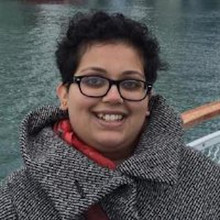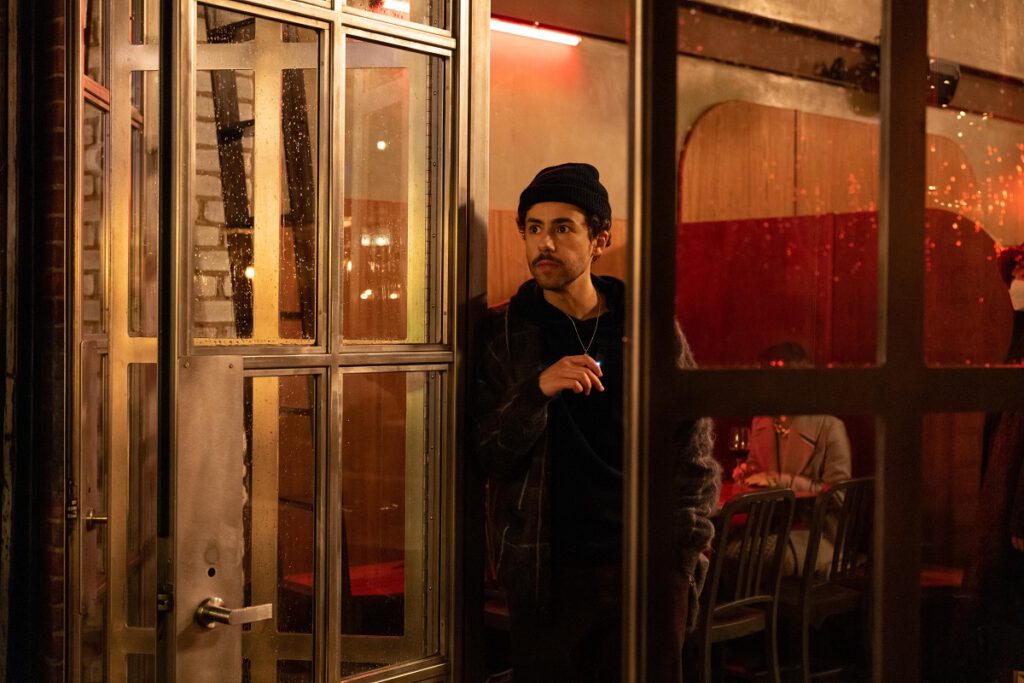Ramy Youssef was born in Queens, New York, to Egyptian parents, and was raised Muslim in New Jersey. I was born in New Delhi, India to Indian parents and was raised Hindu in India and Texas. Youssef is a practicing Muslim and speaks movingly, humorously about his faith. I became an atheist in high school and am generally skeptical of religion as a whole. Despite these enormous differences, I see my story, and my family’s story, in “Ramy,” returning to Hulu on September 30th. The representation is not phoned in. Instead I feel reborn, inspired. Every time I read subtitles for dialogue in Arabic I feel free antidepressants coursing through my brain. “Ramy” is a story that is vital to American television. This is the closest I get to feeling represented in Hollywood, and that is worth its weight in gold.
At the end of season two of the Emmy-nominated hit, Zainab (MaameYaa Boafo, in a near-flawless performance), Ramy’s wife of 24 hours, along with her father and Ramy’s mentor Sheikh Ali Malik (the ever-wonderful Mahershala Ali), walked out on Ramy after he confessed he’d slept with his cousin the night before the wedding. In the subsequent three years, Ramy has thrown himself into expanding his Uncle Naseem’s (Laith Nakli) diamond business. His bank account is burgeoning, but his faith is bankrupt. He hooks up with women he doesn’t like. Youssef has been beautifully deliberate about changing his onscreen affect to indicate Ramy’s near-total disconnect from his own feelings. Seasons One and Two Ramy had a goofy smile, and seemed fairly chilled out in general. That lovely smile is gone. The previously-relaxed facial muscles are slack, haunted, fully submissive to gravity dragging them to the floor. Even when accomplishing a business goal that caused him anxiety, Ramy does not exhibit, and likely does not experience, relief. The next set of worries has already set up shop in his head. Youssef won a Golden Globe for directing an episode of the series in 2019, but his name had better be on that list of nominees for Best Lead Actor at next year’s Emmys.
The “Ramy” writers’ room forces the audience to sit in his social discomfort with him. You cannot escape. You will marinate in the embarrassment until you’ve forgotten what it was like before you, let’s say, became so upset by the overt racism on a work trip to Israel that you absentmindedly congratulated an elderly woman for surviving the Holocaust. I screamed out loud, “Ramy, NO!” And yet I root for him. Season Three features some of the most horrifying things Ramy has done and said, and yet, I want him to get better. I know he can get better. But the long night of Ramy Hassan’s soul has only just begun.

The interconnectedness of choices on this season of “Ramy” is brilliant. Ramy’s mother Maysa (the criminally underrated Hiam Abbass) was known to make horribly insensitive remarks to Lyft passengers, especially black women and nonbinary folks. In Season Three, she has actively made a choice to be more tactful with her Instacart customers. But her unemployed husband Farouk (all hail Amr Waked) has chosen to accompany her because he, like my own father and immigrant dads around the world, is programmed to provide for his family right up till his respiratory system emits a death rattle. Without a steady paycheck, Farouk begins to come apart. He presses business cards into the hands of startled Instacart customers, advertising vague “life coaching” services. The authenticity of the Hassans’ dysfunction is aided by Waked and Abbass’ cosmic chemistry. In almost every episode, the directors often place Farouk and Maysa in separate frames, especially when they’re seated next to each other. For every furtive look of envy Abbass casts about a richly appointed room that is not hers, or flash of revulsion she aims at her husband as he talks about financial castles in the sky, Waked responds with an almost childlike detachment or self-satisfied superiority. Farouk’s choices leave Maysa behind, figuratively and literally, and the couple separates.
Dena (May Calamawy, my queen) is also sinking. Disclaimer: I see myself in Dena, from the curly hair, premature balding (Calamaway was suffering from alopecia areata in real life when she gave permission to Youssef to integrate the story into the series), and her resentment of gendered double standards in her parents’ treatment of Ramy and her. Dena has internalized her family’s abusive comments on her weight, hair damage, and childlessness as “I just thought we were Arabs.” But the writers’ decision to send Dena to a clearly racist therapist rings false when you consider the series’ progressive messages and naturalistic filmmaking. Dena ends her attempts to seek mental health treatment because, it is suggested, the creepy white people doing Indian and Borat accents to role-play as her parents in group therapy are a far worse punishment than the trauma her parents have inflicted on her. “Ramy” writers, Dena needs and deserves better mental health practitioners.

Billed as part of the main cast this season, Laith Nakli as Maysa’s brother Naseem delivers a performance worthy of Shakespearean tragedy. Upon his arrival in Israel with Ramy regarding their new partnership with Jewish diamond dealers, Naseem is bullied and demeaned for his Palestinian origins, and sent back to New York. Alone in the city, and resentful of Ramy’s newfound independent diamond business, Naseem, a closeted gay man, finds his loneliness inexorable. A sorrowful void slowly grows in Nakli’s eyes. It causes his body language to flail and flog, his already mangled diatribes become more unintelligible.
Unmissable performances are par for the course on “Ramy.” Season Three doesn’t have nearly enough Mohammad (laugh-out-loud king and diner owner Mo Amer, who now has his own show on Netflix), but Dave Merheje as Dr. Ahmad walks some fine lines this season with aplomb. (Warning: do not eat before or during the episode titled “second opinion doctor.” It comes with a spiritual advisory title card, and I’m giving you a physiological one.) Additionally there are a pair of pitch-perfect appearances by actors of Indian origin (yay!) whose identities I shan’t ruin. Just know that you’re in for a treat.
“Ramy” is unlike anything else on television, but its closest relative is “Better Call Saul”; both series are character studies. Vince Gilligan and Peter Gould crafted a story that was just as much about Jimmy McGill as it was about Kim Wexler, Mike Ehrmantraut, Chuck McGill, Saul Goodman, and Gus Fring, and how their actions affected each other and anyone who crosses their paths. The same is true of “Ramy’s” ensemble cast. The emotional cosmopolitanism of “Ramy” reminds me of Sheikh Ali Malik’s description of Islam, during Season Two, as an orange: “The rind without the flesh is bitter and useless. The flesh without the rind will wither and rot.” Long live a TV series this daring: one with subtitles, anguish, and joy, inshallah.
Whole third season screened for review. “Ramy” premieres on Hulu on September 30th.












